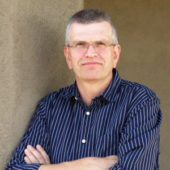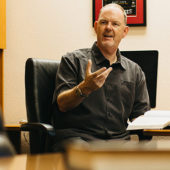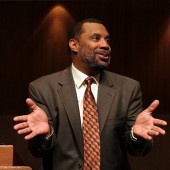“These people have a different history than I have. I’m trying to understand. It doesn’t mean necessarily that I would, at the end of the day, agree. But it just means that I’m moving toward them, trying to understand where they’re coming from and what their lives are like.”
When we don’t understand someone, we tend to be afraid of them. David B. Capes calls us to step out of our comfort zone and learn about them instead. He explains how to reach out and empathize in his book, Slow to Judge.
“I think all of us have a story. And my story is different than your story. I have experienced suffering that others have not. I have experienced joy that others have not. If we’re truly to understand each other, to live in community with each other, [to] truly live as reconciled people, we have been reconciled to God.
God has called each of us to be reconciling people. If we’re to be making things right among other people, we’ve got to understand as best we can, with our limited mind, what other people have been through.”
We have to put ourselves in their place; we have to be willing to walk a mile in their shoes. We can start doing this by asking questions.
What are some basic questions we can ask those with different worldviews?
• What is your story?
• What is it like to be raised as a Muslim?
• When interacting with someone who is homosexual – what is it like to have these urges that are different?
It’s not about always being right. David points out that we’re so quick to want to have the last word in a conversation, but with God’s Spirit in us, we can relax into the dialogue.
“God is the one who is right. God is the right-maker. I don’t have to have all the answers. When we say we have to prove everything – that’s a heavy burden that each of us is trying to bear.”
That requires humility and confidence in God. It requires that we trust God with the outcome.
“I learned a long time ago at Campus Crusade for Christ that the definition of witnessing is sharing Christ in the power of the Spirit and leaving the results to God. Sharing what we know. Sharing our experience. Sharing the truth of the Scripture with other people in a humble, generous way.
At the end of the day, if this person is going to be made right, if God is going to reconcile, it’s really God’s work. It’s not my work. I’ve been faithful to be a witness… that’s my duty.”
Key Scriptures: Psalm 25:1; James 1:19-20
Featured Songs: Light Shine Bright by Toby Mac; Grace Wins by Matthew West; The Maker by Chris August






















